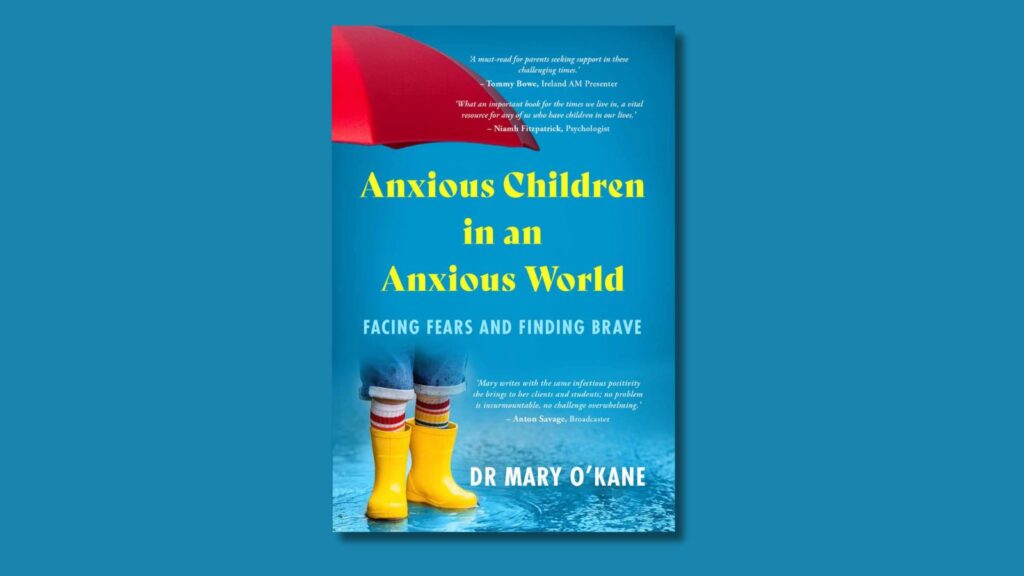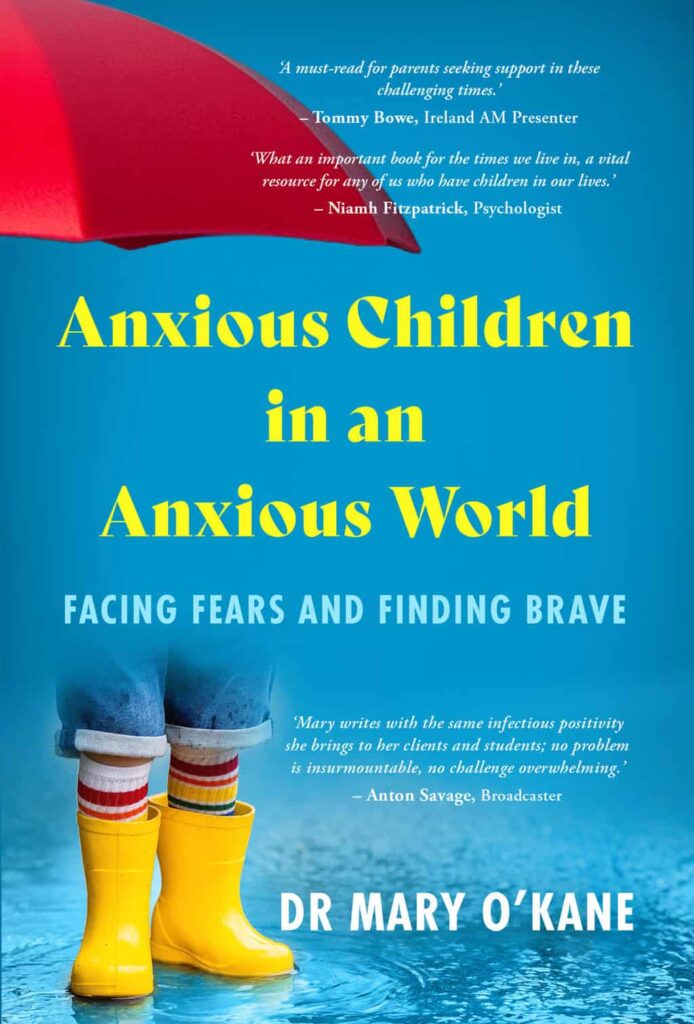
An extract from the bestselling Anxious Children in an Anxious World, by Dr Mary O’Kane
‘This book will introduce you to ways your child can learn to live with their fearful thoughts’—Dr Mary O’Kane
by Dr Mary O’Kane
When it comes to our children, knowledge is power. Psychology can teach us about how anxiety impacts the brain and the body. Research can teach us what interventions are proven to work and how we can use that knowledge. Others with similar experiences can share with us what has worked for them.
I have spent many years, both professionally and personally, working to better understand anxiety and how best to support our children who struggle with it. My aim with this book is to create a resource that will break down lessons from psychology and research in a simple way, providing insight into the important role that adults play in helping children thrive in this anxious world. It is the book I wish I had read when my children were little.
My aim with this book is to create a resource that will break down lessons from psychology and research in a simple way
Anxiety is felt on a spectrum. Although it is natural to feel some anxiety, for some children it becomes something they struggle with. This book is aimed at parents, carers, and educators of children from preschool through to teenage years. It is for adults in the lives of children for whom anxiety is impacting their ability to reach their full potential. These children need our love and support to help them find strategies to cope with their fears. It will also help adults in the lives of sensitive children who want to cultivate the resilience they need to thrive in this anxious world.
There are three very important things we can do as parents to support our children. Firstly, learn about anxiety, the links between the responses of our children’s brains and the physiological impact on their bodies—then share this information with our children. Anxiety is disempowering. Understanding what is happening in their brains and bodies helps our children regain some of that power.
Secondly, we can equip them with self-regulation skills which will help them to respond when anxiety kicks in. We can support them to develop these skills over time so that they can put them into practice when anxiety creeps into their lives.
Thirdly, we can support them in finding the bravery we know they have within them. This involves navigating some challenging situations with our support. It involves coping with tricky emotions and learning to face their fears, baby-step by baby-step.
The goal is not to rid our children of anxiety completely. In fact, that is not possible. Instead, this book will introduce you to ways your child can learn to live with their fearful thoughts
The goal is not to rid our children of anxiety completely. In fact, that is not possible. Instead, this book will introduce you to ways your child can learn to live with their fearful thoughts. We want them to find healthy ways to cope so that it does not become an overwhelming force in their lives. We don’t want to pathologise anxiety. There is not something ‘wrong’ with our children who struggle in this way. It is a completely normal response to many situations. However, for some of our children, we need to help give them the strength to live bravely with the discomfort of their anxiety.
In all my years lecturing and working with parents, the most important thing I have learned is that children struggling with anxiety can learn to live with greater confidence. The support of ‘one good adult’ can be life-changing for a child. Having someone who understands the impact of anxiety on the brain and body and who is willing to work with them to find their inner courage, supporting them to approach the world with more confidence, makes all the difference.
By gently pushing their limits, we are helping them to find the courage to face their fears. Every time they are brave and push through their anxiety, they build confidence in the world and strengthen the brain’s connections that support this courageous behaviour. The time you spend doing this is worth every minute.
In all my years lecturing and working with parents, the most important thing I have learned is that children struggling with anxiety can learn to live with greater confidence
As parents, the overwhelming instinct when our children are struggling is to support them. However, in doing so, we often accommodate the anxious feelings. It is important that we find our inner strength if we want our children to find theirs. Instead of constantly jumping in to ‘save’ them, we want to validate their fears and encourage bravery. Remember, the task at hand is not to try to make the anxiety go away. Instead, it is to support our children to feel stronger and more capable of dealing with it when it comes.
There is an old Indian proverb about a Cherokee Indian Chief and his grandson. He tells his grandson that life is a battle between two wolves inside us. The first wolf is Fear. It brings with it anxiety, uncertainty, hesitancy, and indecision. The second wolf is Faith. It brings calm, confidence, decisiveness, and action. ‘But which wolf will win, grandfather?’ the grandson asks. His grandfather replies, ‘The one we feed.’
Our children who struggle with anxiety need to learn to have faith in themselves. Faith in their ability to live their lives to the full. Faith in their ability to stretch outside their comfort zones. Faith that they can leave the safe harbour and follow their hopes and dreams.

Dr Mary O’Kane is a Lecturer in Psychology and Early Childhood Studies at the Open Univeristy. She is an expert contributor to the Anton Savage Show on Newstalk radio discussing a broad range of parenting and childhood issues while also responding to viewers parenting queries. She is also a regular contributor to various other national and local media outlets. Her first book Perfectly Imperfect Parenting: Connection Not Perfection was published in April 2021, and received an Honorary Mention in the Eric Hoffer Book Awards. For more, see www.drmaryokane.ie.












